Are you a night owl? Do you have a tendency for staying up late at night? Then it is likely that you don’t get the recommended 7-8 hours of sleep. But can this affect your thoughts, emotions and mood? Let’s find out how sleep deprivation can affect your mental health.
Are you in a sleep debt?
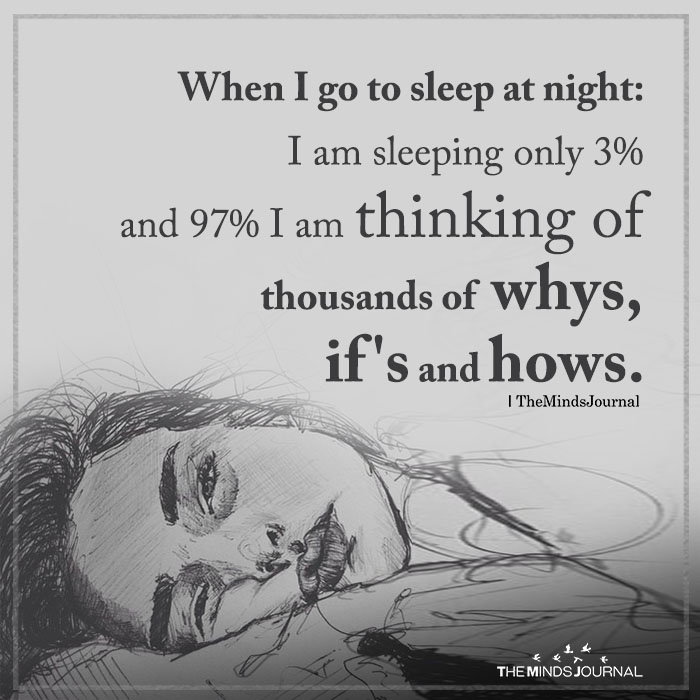
Whether you work long hours, stay busy with family and life commitments, stay up till late to study or love to party with your friends till the wee hours of the morning, sleep is the first thing that gets sacrificed. This is especially true if you are a night owl. On the other hand, you may simply delay sleep just to catch up on certain activities that you don’t get the time to engage in during the day, like reading or watching a movie. Known as revenge bedtime procrastination, it often comes at the expense of some much-needed sleep.
Related: What Is REM Sleep? Why Is It Important For You
Consider sleep like the amount of savings you have in your bank. While you may withdraw it when you are staying up late at night for whatever reason, you need to deposit it back and repay the amount to your sleep bank. However, when you don’t repay your sleep debt and continuously keep withdrawing on a daily basis, it can make your bank account empty and lead to serious consequences. All this sleep debt or sleep deficit can undoubtedly have some severe detrimental effects on your health.
Sleep and mental health
The American Academy of Sleep Medicine (AASM) and Sleep Research Society (SRS) recommends that “adults obtain seven or more hours of sleep per night to avoid the health risks of chronic inadequate sleep.” While we may have individual sleep needs, an average of 7-8 hours of quality sleep per night is crucial for healthy functioning. This is why chronic sleep deprivation can distort our thoughts and our ability to manage our emotions. Staying up late at night in the long run can lead to the development of psychological conditions, like anxiety and depression, which can further disrupt your sleep.
Related: Why Women Need More Sleep Than Men, According To Science
How does sleep affect mental health, according to science
If you are wondering why staying up late is bad, then you need to understand that scientists have revealed that not getting enough sleep affects your mental health negatively. Here is how staying up late affects mental health –
1. Cognitive decline
One of the things staying up all night does to your brain is that it increases the risk of dementia and cognitive impairment, as your brain is unable to clear toxins and excess proteins out due to lack of sleep. One recent study found that chronic short sleep duration at the age of 50, 60, and 70 can increase the risk of dementia by 30%, as compared to persistent normal sleep duration, which is considered to be 7 hours.
Further studies show that prolonged wakefulness, sleep deprivation (SD) or sleep restriction can “induce adverse changes in cognitive performance.” It can also impair working memory, long-term memory, attention, decision-making and vigilance.
2. Lower moods
Do you often feel groggy, angry and irritated after staying up late at night? Does your mood get better once you get some good, quality sleep? Sleep is closely linked to your mood and how you feel the day after. Studies show that “cumulative nocturnal sleep debt” can cause significant mood disturbance. It has been observed that sleeping for only 4.5 hours a night for a week can make you feel mentally exhausted, sad, angry and severely stressed. However, getting adequate sleep can improve your mood significantly. Sleep debt can also lead to increased –
- Arousal
- Agitation
- Alert
- Abnormal responses
- Wakefulness
Lack of sleep can make us feel grumpier, frustrated and unnecessarily overreact to even the smallest issues. One 2018 study found that staying up late at night is “linked to impaired emotional functioning in healthy and depressed individuals,” and can lead to “a more negative daily mood.”
Related: How Screen Time Affects Quality Of Sleep And Overall Health of Young Adults
3. Mental illnesses
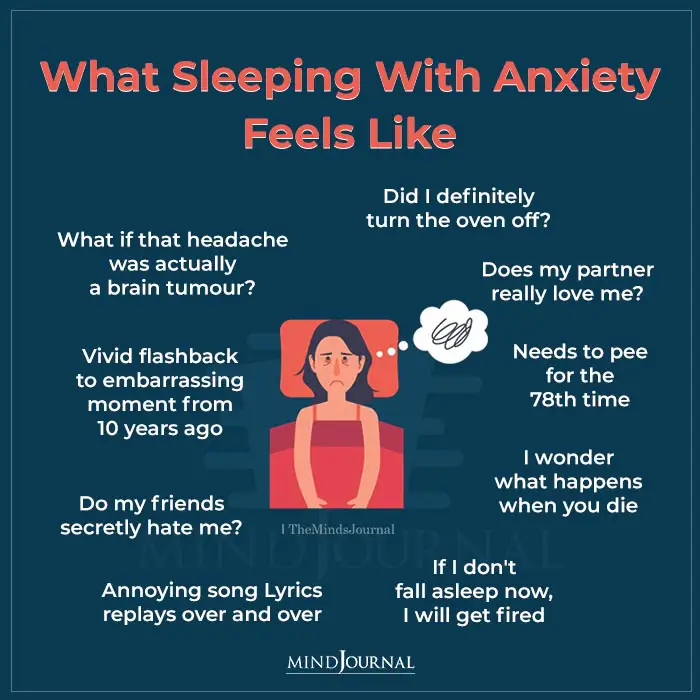
Sleep debt and sleep deprivation are closely associated with the risk of developing a number of psychological and psychiatric issues. Researchers from a 2017 study, explain that “Sleep and mental health go hand-in-hand, with many, if not all, mental health problems being associated with problems sleeping.” In fact, improving sleeping habits can also improve your mental health.
When you stay up all night frequently, it can affect your mental wellbeing in several ways and may lead to the following psychological conditions –
- Stress
- Anxiety
- Depression
- Psychotic episodes
- Bipolar Disorder
- Attention-deficit hyperactivity disorder (ADHD)
- Mania
- Paranoia
- Schizophrenia
- Affective disorders
- Substance abuse
- Suicidality
Psychological effects of sleep deprivation
Researchers have found that staying up late at night frequently can lead to cognitive-emotional arousal and different mental disorders. “Poor sleep is a symptom of underlying mental and physical health problems,” add the researchers. It was also observed that when you have a late sleeping habit or suffer from insomnia, you are 5 times more likely to suffer from depression, anxiety disorders and panic disorder.
In fact, people suffering from stress, anxiety or depression have trouble falling asleep due to their condition. Insomnia or sleep difficulties are one of the most common signs of depression. This chronic lack of sleep can “cause huge distress, have a major impact on quality of life, and are a strong risk factor for suicide,” explains a study. Moreover, night owls have difficulty managing their emotions and are highly prone to suppressing their feelings, found scientists.
Related: 13 Terrifying Health Effects of Sleep Deprivation
What’s more, sleep deprivation or difficulty sleeping is one of the intrinsic features of ADHD, reveal experts. Sleep disturbances are also strongly linked to dysfunction in bipolar disorder and may even worsen the symptoms. It can also trigger manic relapse and have negative effects on emotion regulation the next day, explain scientists.
But that’s not all. Sleep deprivation can also result in a number of other mental health problems, when you choose to stay up late till night almost every single day. Missing sleep can lead to –
- Hypertension
- Irritability
- Uncontrollable behavior
- Distorted thinking
- Rumination
- Sleep apnea and narcolepsy
- Forgetfulness
- Loneliness
- Mistakes and errors in performance
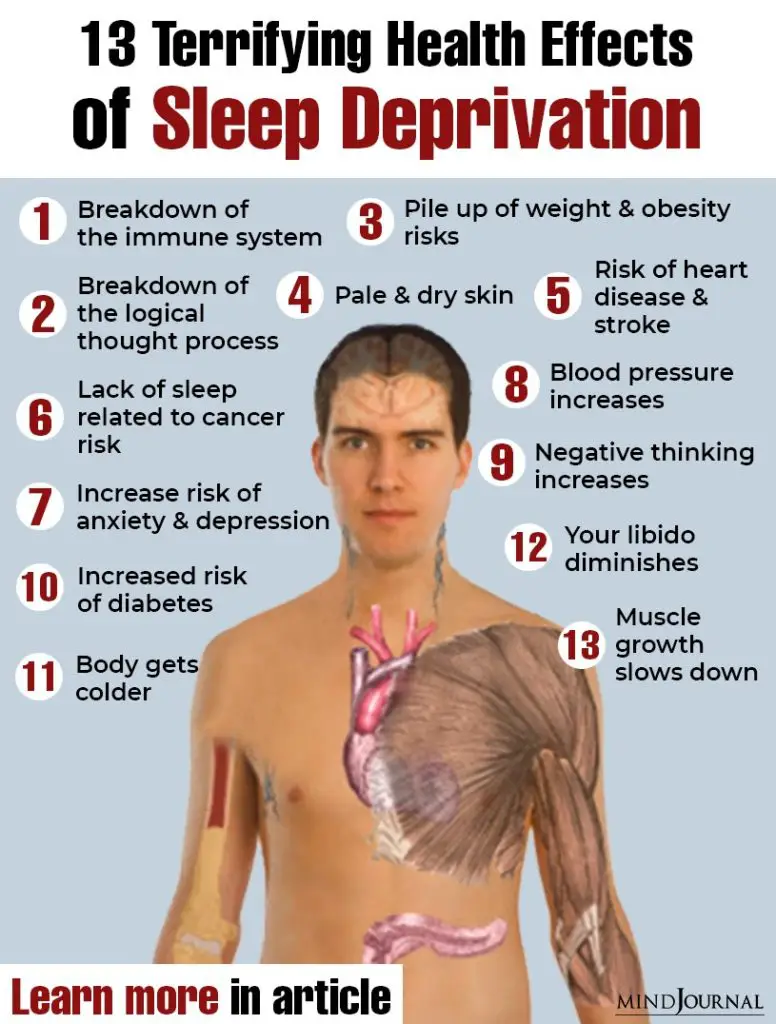
4. Physical health issues
Staying up late at night continuously over a long period of time is also associated with a number of different physical health issues, such as –
- Higher blood pressure
- Diabetes
- Weight gain and obesity
- Weakened immune system, respiratory system and digestive system
- Cardiovascular disease, such as heart attack and stroke
- Mortality or early death
- Increased sedentary behavior or being less physically active
- Tiredness and fatigue
- Elevated stress hormones
Well, now you know how staying up late at night frequently can be seriously detrimental to your physical, mental and emotional health and wellbeing.
Related: The Creative Power Of Your Sleep: 10 Easy Practices
How to improve your sleep and mental health
If you are struggling with the psychological effects of sleep deprivation, then here are a few steps that can help you to sleep better and experience better health –
- Plan your daily activities in such a way so that you can get at least 7 hours of sleep on a daily basis
- Follow a strict sleep-wake schedule so that you sleep and wake up at the same time every day
- Make sure your bedroom has comfortable lighting, temperature and noise that promotes relaxation and rest
- Ensure that your bed is comfortable enough as per your preferences
- Follow a relaxing bedtime routine like meditating, reading or listening to relaxing music
- Make sure not to take naps in the daytime to avoid staying up late at night
- Avoid going to bed or trying to sleep unless you are actually sleepy
- If you don’t feel tired, get out of your bed and do some relaxing activity till you feel tired
- Avoid the use of gadgets and electronic devices before bedtime as the blue light from screens can keep you awake
- Exercise regularly, but avoid working out a few hours before sleep
- Avoid eating heavy meals a few hours before bedtime
- Avoid alcohol, caffeine and nicotine before bedtime
Related: 8 Creepy Facts About Sleep Paralysis That Will Not Let You Sleep
Get some sleep
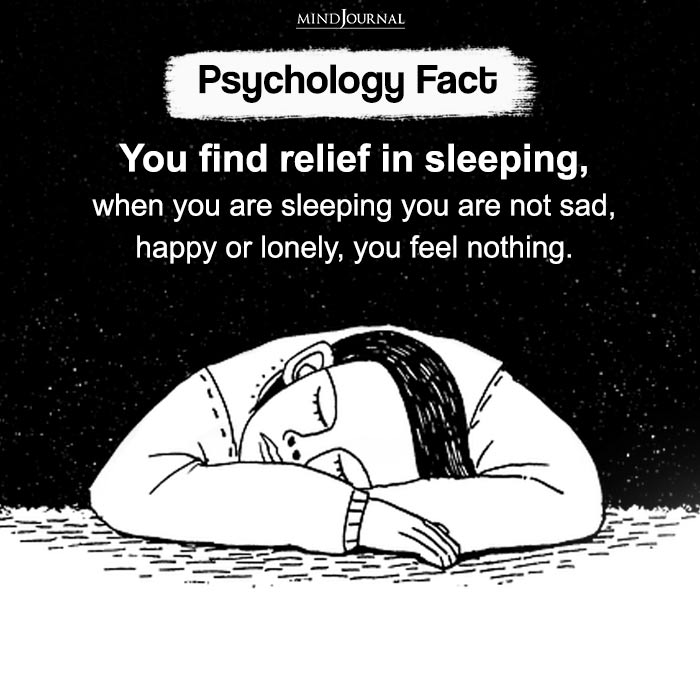
Staying up late at night often feels good as there is no one to disturb you – no loud noises, no distractions, no pressure, no responsibilities and no deadlines. It is the one time that you can truly be and let your hair down without worrying about anything. While this may feel relaxing for the time being, it is actually doing more harm than good.
So whether you stay up all night for work, study or just to have some time to yourself, understand the importance of having quality sleep on a daily basis. A good night’s sleep is crucial for avoiding the adverse effects of staying up late and improving your physical and mental health.
If you have trouble sleeping at night or suffer from insomnia, consulting a doctor can be helpful.
Make smarter choices in life. Sleep for 7-8 hours every night and unlock the benefits of good mental health.
Good night!
Related: 15 Weird and Interesting Facts about Dreams
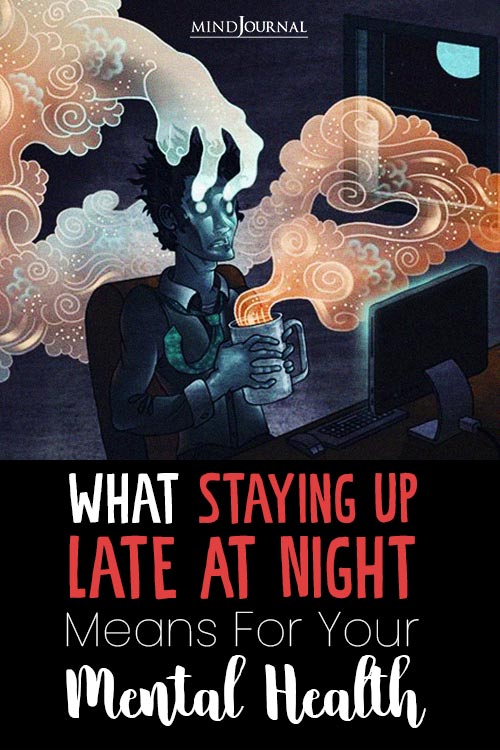
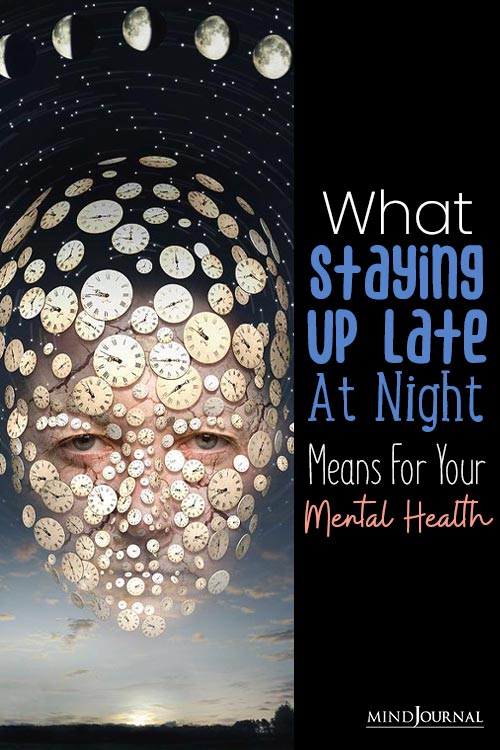
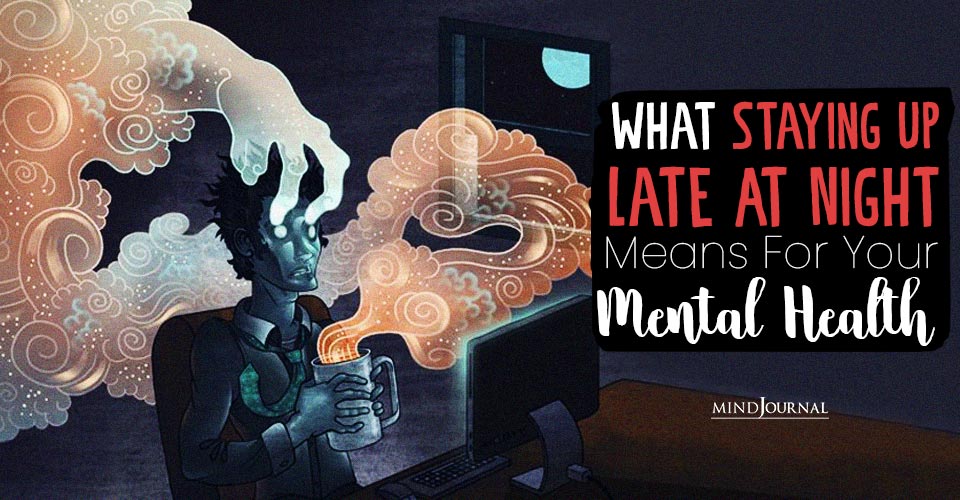


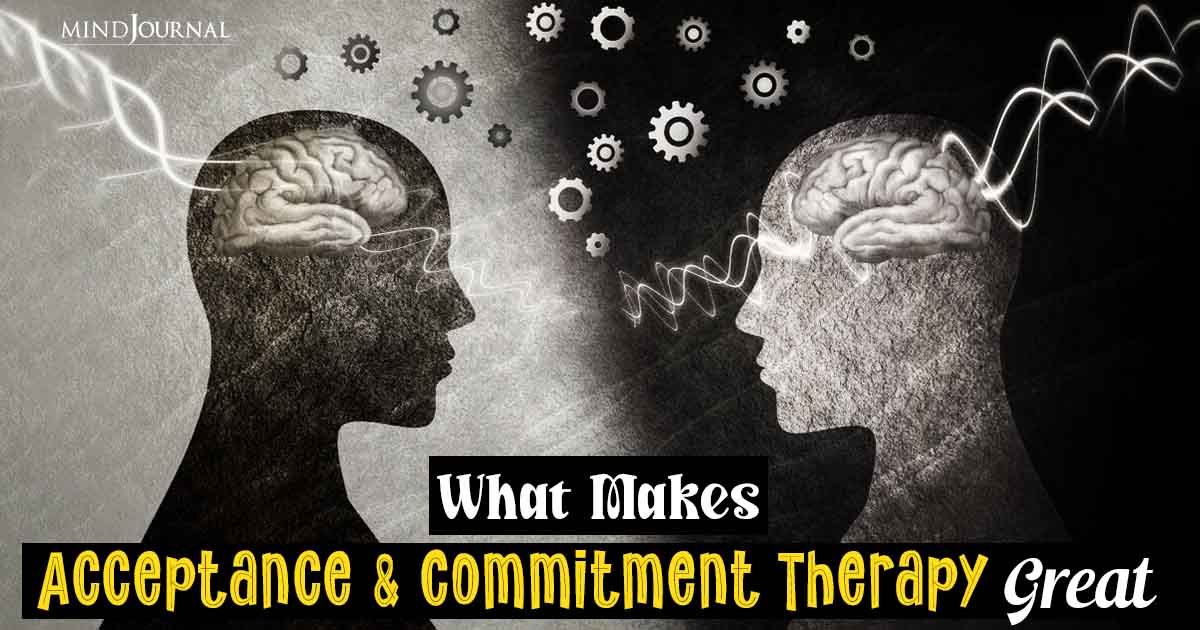




Leave a Reply
You must be logged in to post a comment.